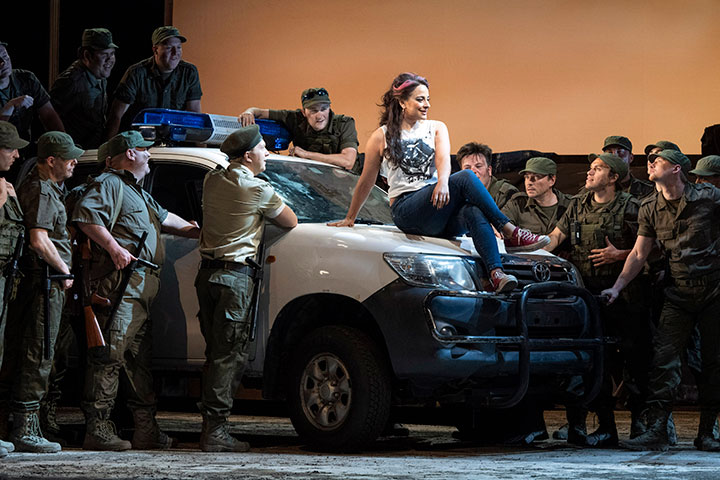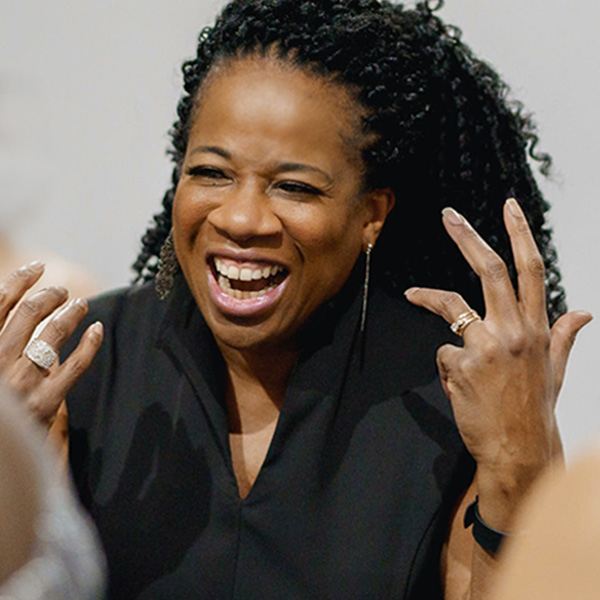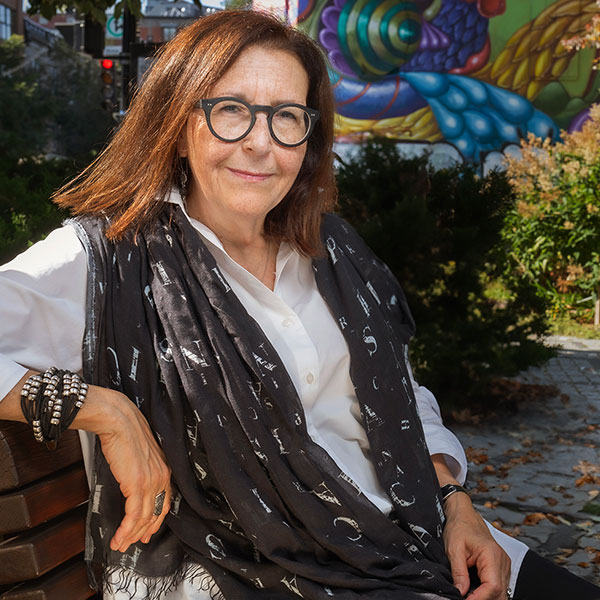Opera is often celebrated as one of our most beautiful art forms, but if you are unfamiliar with it, you might be surprised by what goes on in some of its most famous storylines.
Let’s take a look at Giuseppe Verdi’s Rigoletto, for instance. Verdi initially entitled the opera La maledizione (The Curse), and that first pick offers a suggestive hint of the dark subject matter that is presented on stage along with the work’s classic arias: betrayal, abduction, medieval vengeance, murder, fatal self-sacrifice, stabbing, a corpse in a sack, despair…
Some might describe that as being pretty… metal.
Tunisian-born mezzo-soprano Rihab Chaieb, BMus’10, appeared in the New York Metropolitan Opera’s production of Giuseppe Verdi’s Rigoletto this January, playing Maddalena, the femme fatale prostitute sister of a hitman. She brought both a sultry voice and a firm grounding in the genre of Metallica to the role.
Chaieb earned rapturous reviews last year at the UK’s Glyndebourne Festival for her star turn in the title role of Carmen (a role she previously took on as a student in an Opera McGill production). The accolades included: “It would be hard to do better than this” (The Financial Times); “A mesmerizing stage personality” (The Times); “Her way with words is insightful, beguiling and always telling” (The Guardian).

Before she appeared in any opera productions, Chaieb took to the stage as the lead singer of a metal band called Ars Mystica. A self-described goth during high school, the first-generation immigrant listened to both pop and Arabic music as a teen, but was particularly inspired by Nightwish, a Finnish gothic symphonic metal band once fronted by female singer Tarja Turunen.
“I loved the clash, the hard sound but with the lyricism of the female voice,” she says. Factor in the musical precision, the epic melodrama and the colourful costumes and the links between metal and opera don’t seem so far-fetched. Chaieb acknowledged the similarities in an interview with the arts site Gramilano. “Both genres are quite theatrical.”
“I was the perfect student with the perfect grades,” says Chaieb of her youth. But she also had a rebellious side. “I didn’t like authority. I needed an outlet, and I had so much rage in a way that metal just made sense.”
Chaieb had never taken a voice lesson before she began singing in the band. In Ars Mystica, “the guitarist was classically trained, our keyboardist was classically trained. They had the good technique, and they told me, ‘You know, classical music is kind of the base to start with.’”
She sought out a vocal teacher in Montreal. “I remember she gave me some very dark lieder to sing, by Brahms, and it’s literally two siblings being at the brink of death.” She was sent home with other CDs to listen to, including Renee Fleming singing Song to the Moon from Antonin Dvořák’s Rusalka.
“I just had this physical reaction to it – I collapsed on the floor crying. I had no idea what they were talking about, just the music and its power. I still have shivers. ‘Oh my God what is that, I need to do this.’” She wanted to make other people feel the same way.
Opera should not have been on the trajectory of my life. And that’s why I want to bring opera to other kinds of people who never thought about it.”
Mezzo-soprano Rihab Chaieb
That motivation led her to the voice program at the Schulich School of Music, where she studied with Professors Winston Purdy and Sanford Sylvan.
The decision wasn’t a popular one with her parents at first.
“If you talked to a lot of first-generation immigrants, our parents [arrive] with so much hope, and they put so much pressure on us,” says Chaieb. “So [studying music] wasn’t the obvious choice for me.”
After completing her McGill studies, Chaieb further honed her skills with the Canadian Opera Company’s Ensemble Studio and the Metropolitan Opera’s Lindemann Young Artist Program. In 2016, she won the top prize at the Gerda Lissner International Vocal Competition in New York. Today, she’s an in-demand performer. Next up is a major role in a LA Opera production of Mozart’s Così fan tutte.
An international opera career has made Chaieb unavoidably itinerant. She has appeared in productions in Munich, Stockholm, Washington, Zurich and Geneva. She doesn’t “live anywhere and I live everywhere at the same time,” she says. She does have an apartment in Tunisia with a balcony 15 meters from the Mediterranean.
She sings in a dizzying array of languages – French, German, English, Italian, Russian, Czech, Arabic, Spanish, Yiddish, Hebrew and Greek. Chaieb says her favourite composer is typically “the one that I’m singing now.”
However, she does profess an affinity for “the French romantic stuff. I mean it’s just so wild, you know? Kissing the head of John the Baptist on the silver platter [in Salome]. It’s twisted, but it’s romantic – it’s beauty and suffering…”
Despite her successes, Chaieb says she can’t afford to get too comfortable about her career. “One day you’re in the Met and the next you can lose your voice. I mean, I’m a freelancer…” On the plus side, her family is now firmly on board with her choice of career.
She recognizes that she is, in some ways, an unlikely rising star in the opera world.
“Opera should not have been on the trajectory of my life,” she affirms. “And that’s why I want to bring opera to other kinds of people who never thought about it. To audiences that say, ‘Oh my gosh, she has tattoos, she started in a metal band, she loves [Norwegian black metal band] Dimmu Borgir’…”


